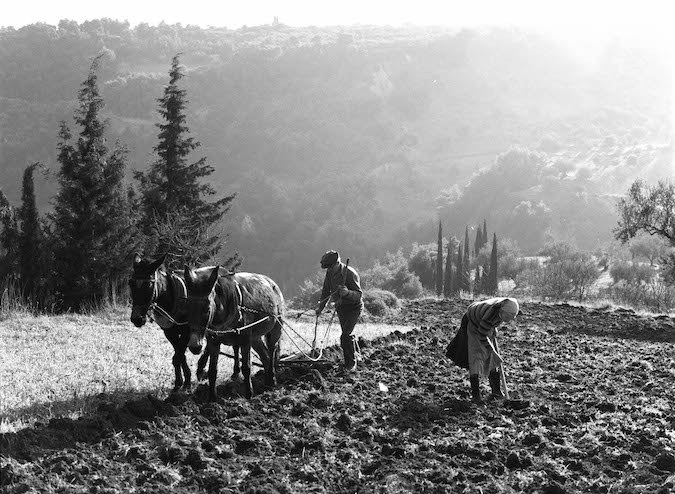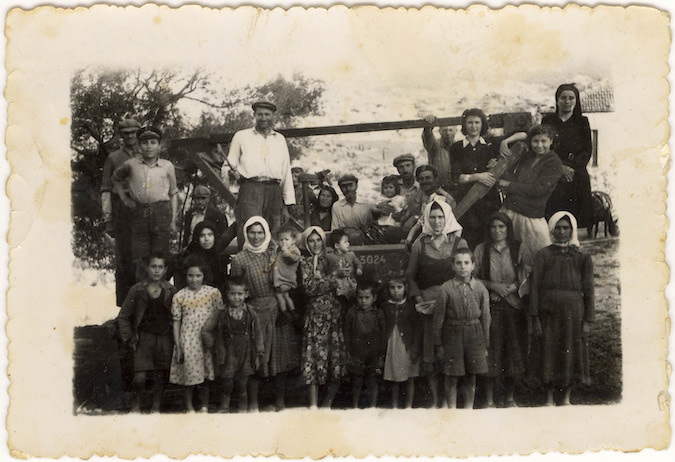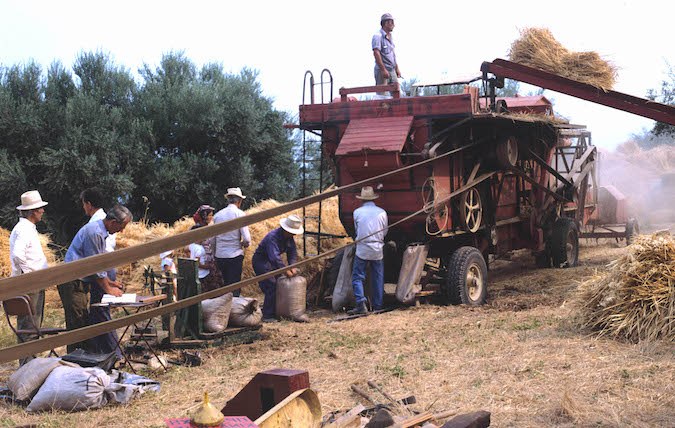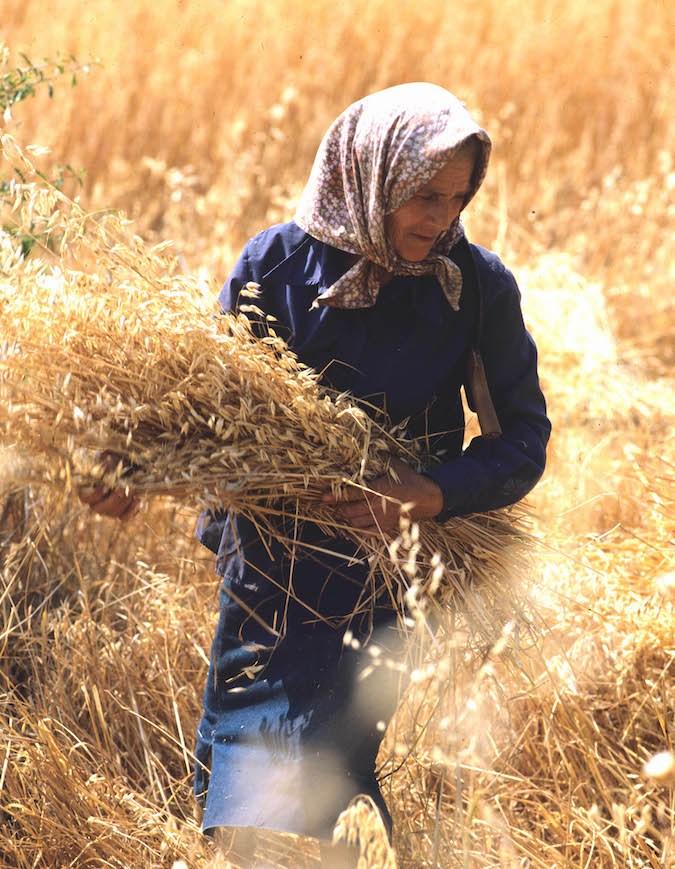Works and Days
I
In the beginning, mortal people
lived as if they were gods,
their hearts free from all sorrow,
and without hard work or pain.
They took their pleasure in festivals,
and lived without troubles.
The fruitful grainland
yielded its harvest to them
of its own accord.
It was great and abundant,
while they at their pleasure
quietly and in peace
they looked after their works.
It could have been that
easily in one day
you could do work
enough to keep for a year,
with no more working.

II
But Pandora’s design was
sad troubles for mankind.
After these, a second generation,
of silver.
By their own foolishness
they had troubles,
for they were not able
to keep away from
reckless crime against each other,
evil war and terrible carnage.
Then, an age of iron.
Never now by daytime will there be
an end to hard work and pain,
nor in the night
to weariness, when the gods
send anxieties to trouble us.
Yet here also there shall be
some good things mixed with the evils.

III
There is an outcry
when Justice is dragged by circumstance,
when bribe-eating men
pull her about,
and judge their cases with crooked decisions.
She follows weeping,
to the city and gatherings of people.
Justice is Zeus’s daughter.
Whenever anyone hurts her with lying slander
she goes and sits at the feet of her father
and cries out on the wicked purposes of men.
The people must pay for
the mad folly of their rulers,
who for their own greedy purposes
twist the courses of justice aslant
by false proclamations.
For lightly Zeus makes strong,
and lightly brings strength to confusion.
Lightly he diminishes the great one,
and uplifts the obscure.
Lightly the crooked he straightens,
withers the proud.
Attend you must with eye and ear
and make judgements straight.

IV
To the world Zeus gave justice,
and she in the end is proved
the best thing we have.
When the people issue
straight decisions to each other,
and to strangers,
their city flourishes,
and the people flourish inside it.
Peace, the nurse of children, rules their land.
Neither famine nor inward disaster
comes the way of those people
who are straight and just.
Lightheartedly they tend the fields
which are all their care.
They need have no traffic with ships,
for their own grain-giving land
yields them its harvest.
Far away from the seas and its tossing water,
you have your rich land
wherever you live.
Ready yourself to sow,
to plow to reap,
if you wish to bring in
the yields of Demeter,
all in their season,
when once more
the earth, mother of us all,
bears yield in all its variety.

Text: Adapted from Hesiod. c700 BCE [1914]. Hesiod, the Homeric Hymns and Homerica. Translated by H. G. Evelyn-White. London UK: William Heinemann. Hesiod. c700 BCE [1959]. The Works and Days. Translated by R. Lattimore. Ann Arbor MI: University of Michigan Press.
Photos: I. The last horse-ploughed wheat field in Valcouvina. II. The first coming of the threshing machine to in 1952. III. Its final coming in 1981. IV. Last harvesting.
